Do you know, that the influx of foreigners, impacts not only how Georgian economy looks like, but also how Georgian language is being taught?
So let’s talk today about teaching Georgian as a foreign language in the context of changes that we encountered in Georgia for the last 16 years. I am sure it will be interesting for you even if you are not education specialist. In the end I will prove that Georgian language is not hard to learn, it’s just a belief created and I will explain you how it happened.
You can listen to The Caucasus podcast also on main podcasting platforms, including Spotify and Apple Podcasts.
Welcome to the another episode of the Caucasus podcast! This episode is a bit special. This year I was a speaker at an international scientific conference about Caucasus at University of Warsaw and I was sharing the results of my 16 years of research on how the Georgian language is being taught.
Please note that in this episode we’ll be talking about teaching Georgian as a foreign language, so teaching Georgian to someone, who had no or almost no contact with the Georgian language. This is a bit different than teaching Georgian as a second language, e,g. to language minorities about whom we were talking in the episode no 14.
When I shared it online I was snowed under the questions where you can watch it online. And that’s how I decided to record this speech as a podcast episode.
So let’s start with the main facts. I will be sharing my research I have been conducting since 2008 and will focus on teaching Georgian as a foreign language. The analysis methods I have been using over the years are qualitative research, including numerous interviews with Georgian language teachers, students and other specialists in the field. I have also over 10 years of my own experience in teaching Georgian as a foreign language which I use here as well.
Additionally I have been using participatory observation and I have conducted a small quantitative research several years ago and its results I included in todays analysis as well.
Ok, that were the details for the nerds and geeks listening about the research on teaching Georgian and remember, that if you have any additional questions to today’s episode you can DM me on our socials and leave the comment – which is possible in some podcasting apps.
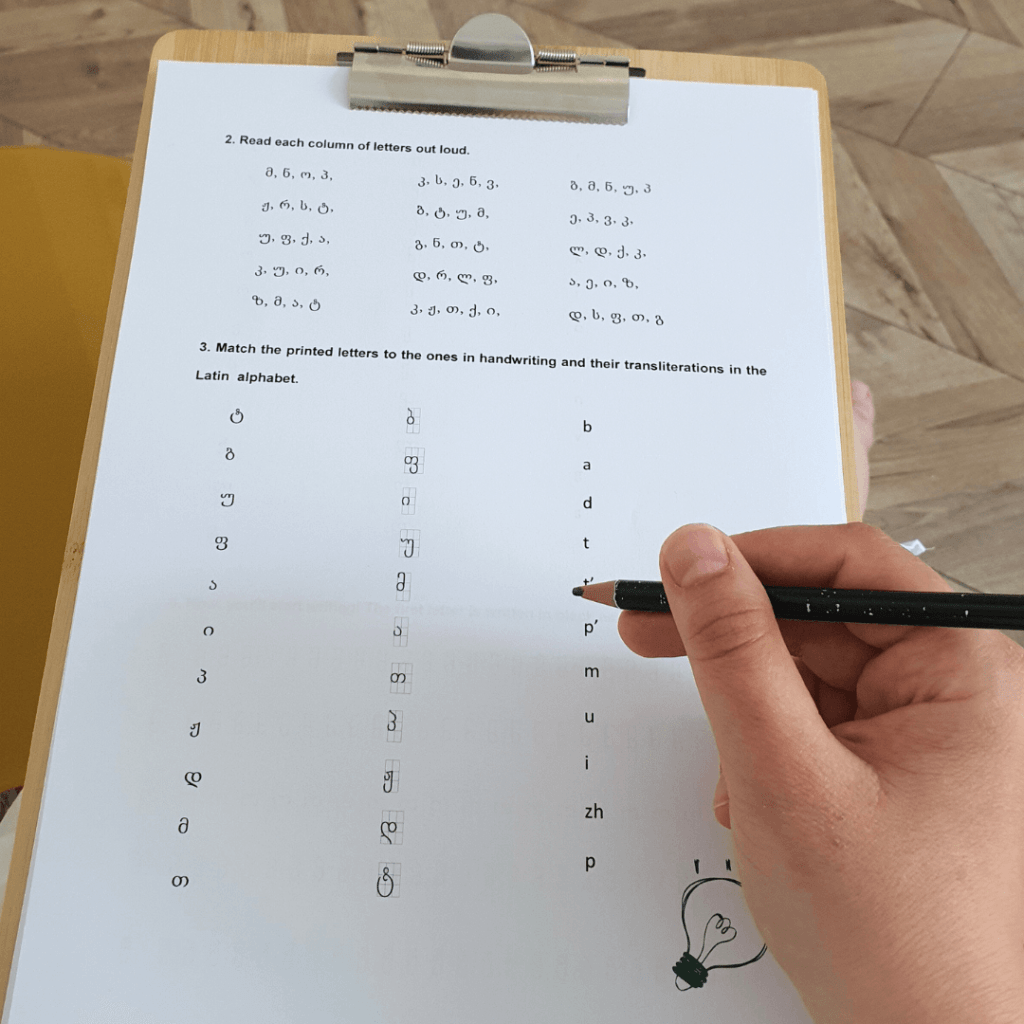
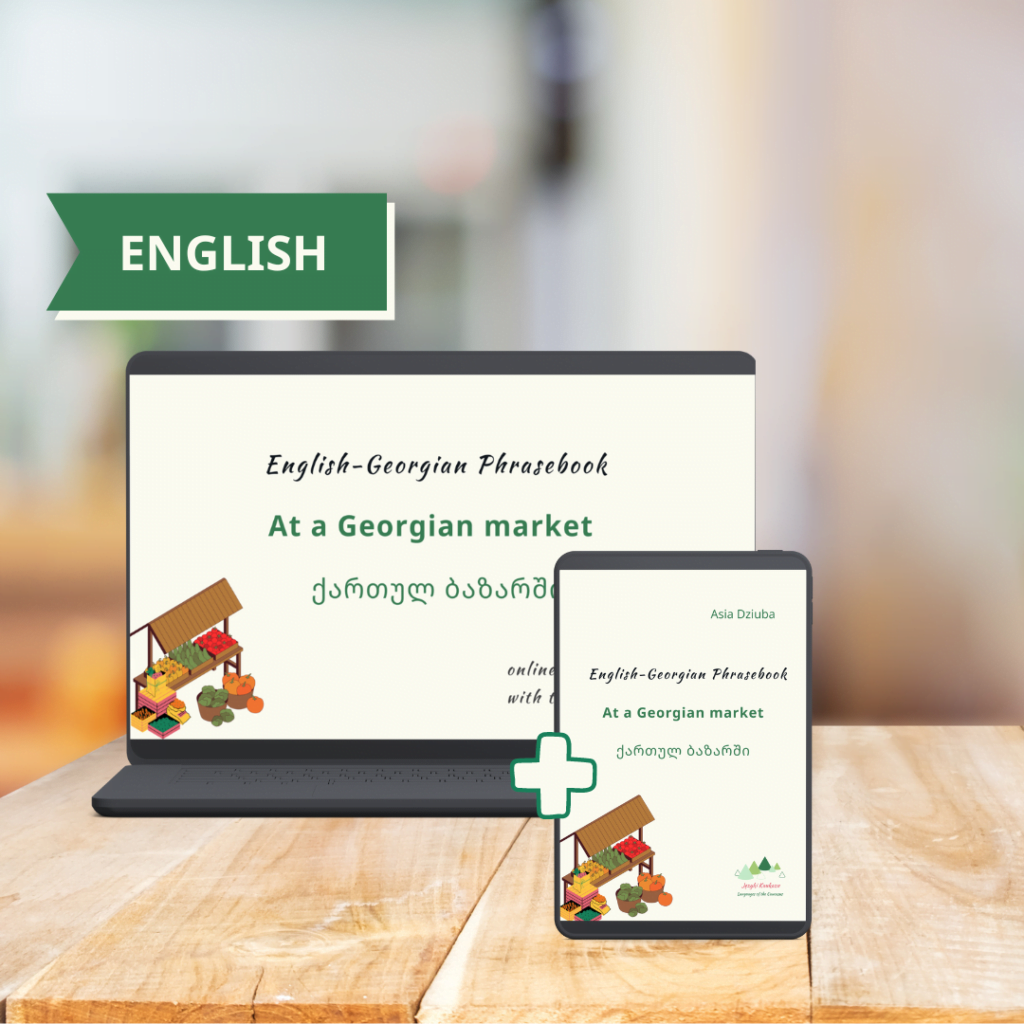
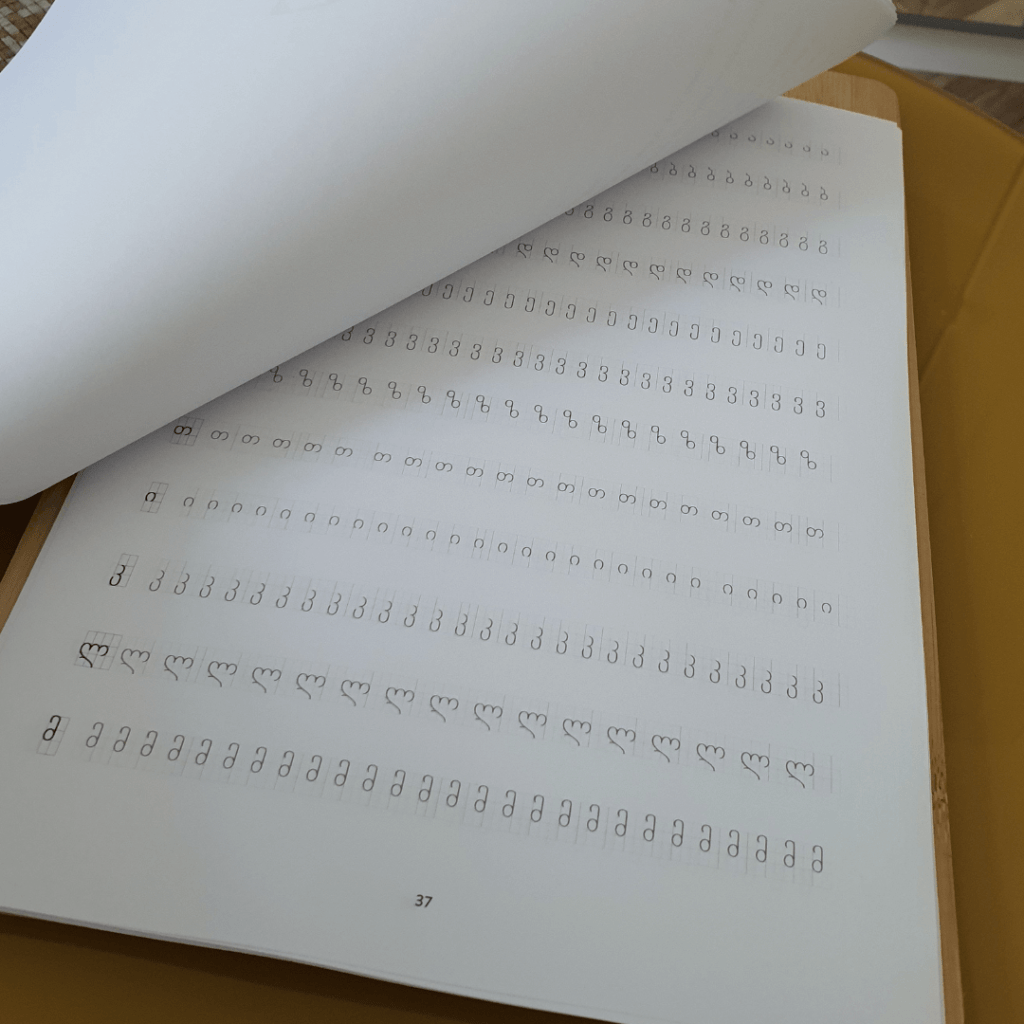
Who studied Georgian language until 2012 and how it impacted on teaching Georgian that time?
Before that time Georgia was visited by foreigners who were coming there mainly for working and living there. The majority of the foreigners in Georgia then were diplomats or spouses from so called mixed families, i.e. when one of the spouses was not Georgian.
As a result Georgian was taught as a foreign language mainly for work purposes, especially for diplomats and foreigners working in the international organizations who were required by the position to speak Georgian at least a bit.
The other big group were the exchange students who had Georgian language as an optional subject and many treated it as an optional with no expectations to learn it fluently. That time I was also studying in Georgia, between 2008 and 2009 and I remember I was the one and only foreign student at my faculty because the study was fully in Georgian.
That time foreigners were using heavily English and/or Russian. There was much weaker belief that you should learn Georgian when living in Georgia. Hence it was impacting teaching Georgian as such as well.
How could then foreigners study Georgian language?
What is characteristic for that period of teaching Georgian is a scarce or few available study materials for the Georgian language. This is the time when slowly the new, modern style study books and text books are being published, one of which is Biliki by Nana Shavtvaladze, with which I started my Georgian study as well.
The other problem was the availability of the study materials. It means that I had to travel to Tbilisi and in only one or two bookstores I could buy any study materials in English or Russian. I remember I bought my Biliki book set from Irma, that time company assistant, who met with me in a café to sell me the books I wanted.
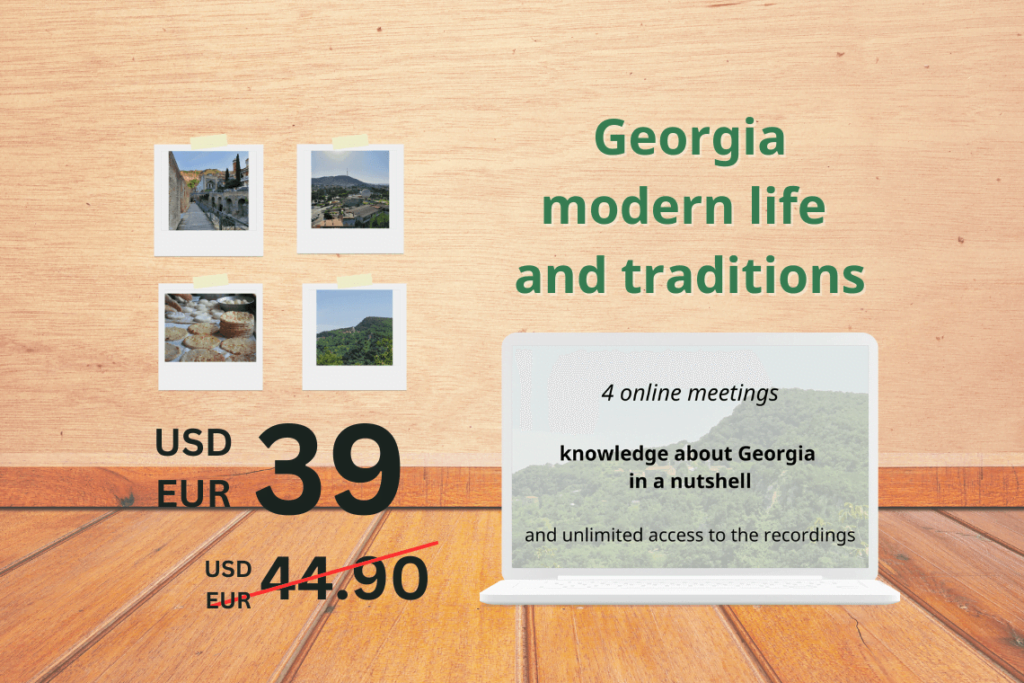
The additional challenge was the research on how to teach foreigners Georgian, so that they can actually learn it. The books I mentioned were the first attempts to create such methods. What you should know here, is that with Georgian you cannot just copy-paste the methods used with English, German or Spanish.
You should adjust it to the Georgian language specifics, so that the student can actually understand and learn how to use the proper Georgian.
The methods that were used for teaching Georgian were often based on so called “school-style” so how we have been learning languages at school and sometimes also called the Soviet Style, so e.g. dull repetitions of strange sentences, learning mainly grammar and reading etc. If you come from former soviet block you or your parents probably encountered it.
How Georgian touristic boom changed the Georgian study by foreigners?
Now I can reveal why previously I mentioned the time till 2012. In 2012 the amount of tourists nearly doubled (from 2.8 million in 2011 to 4.4 milion a year after). As a comparison, in 2017 there were 7.5 million tourists who visited Georgia.
What also impacted the influx of tourists was the so called generous border policy and 1% tax rate that also foreigners opening companies in Georgia could use. Therefore, Georgia became perceived as a good destination for digital nomads or entrepreneurs who were looking for the more generous tax policies for the company.
Additional factor that impacted the influx of tourists, especially from Europe, was visa liberalization for Georgian citizens when traveling to European Union. As result, more Georgians started traveling, meeting locals, starting new relationships and more Europeans got interested in visiting Georgia as well.
Last but not least, factor one can notice especially since 2017, is the increase of the number of foreigners studying at Georgian universities. Often these students were having all the classes in English, however there were also additional classes only for learning Georgian.
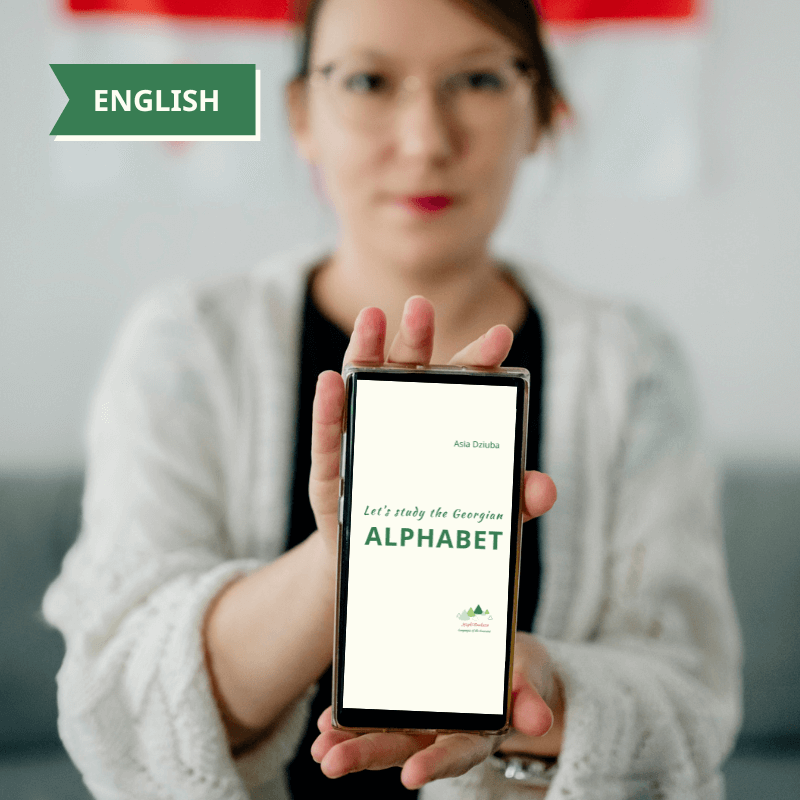
Want to start learning Georgian and look of a study materials for learning teh Georgian alphabet?
Check out our study book ’Let’s study the Georgian alphabet’ full of exercises, audio, inforgraphics and more that will help you in no time start reading, writing and recognizing the Georgian letters.
How the influx of foreigners to Georgia impacted the demand for Georgian language lessons?
Firstly, what one observes is the increased demand for so called survival Georgian and phrasebook study materials. It doesn’t mean that previously there were no such books and lessons, however the amount of such offers increased. Also, the foreigners started looking for a bit different type of lessons than the diplomats, so after all it impacted the ways of teaching Georgian too.
This you can also observe a bit, when analyzing the topics of readings and listening exercises of the study books. They were less work-official situations related and more focused on daily life and typical touristic situations.
What is more, this period also characterizes with bigger interest in learning Georgian for daily life and family meetings situations. This is something I call „I-want-to-talk-to-my in-laws vocab”. People were gaining new friendships, new relationships with Georgians and wanted to be able to participate in conversations that were going around them. As a result, these were the topics they were expecting to be taught by Georgian teachers.
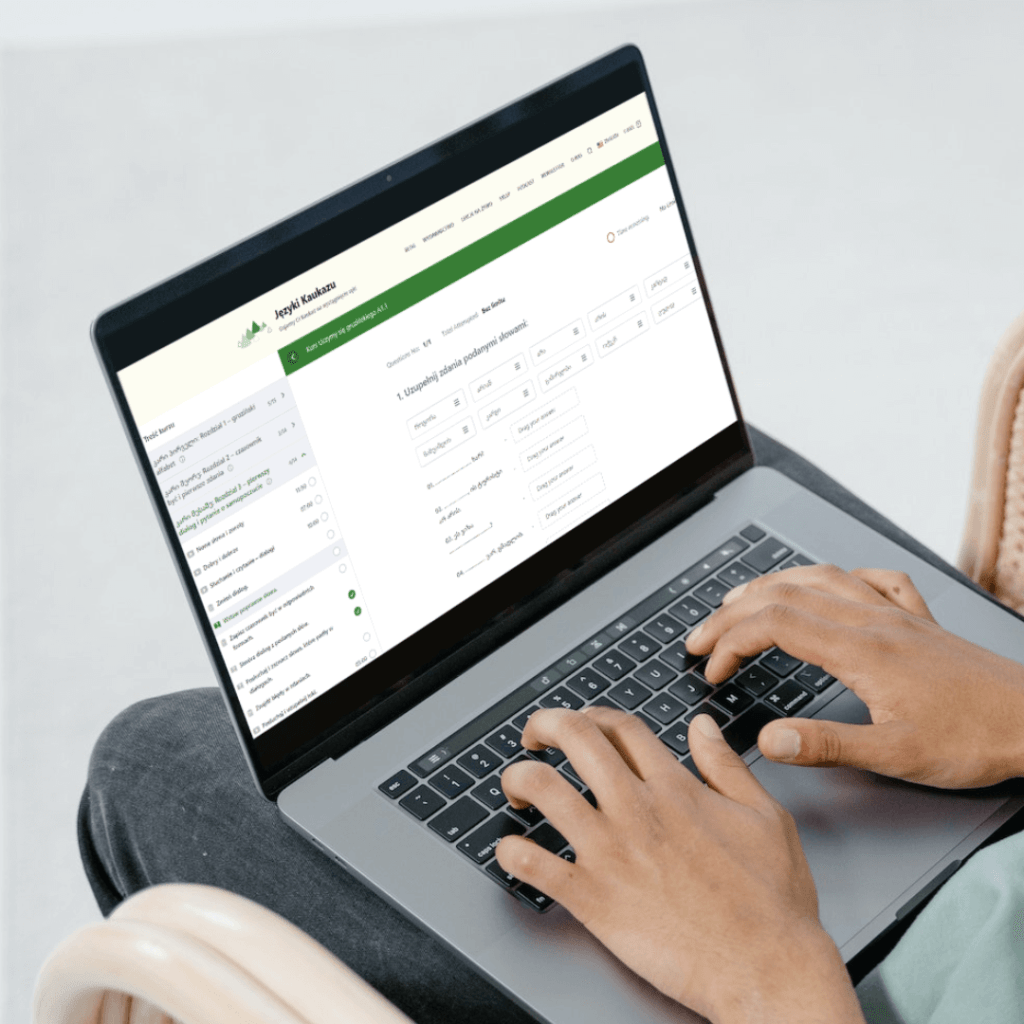
For the last few years, together with the development of internet, apps, mobiles etc. and foreigners being used to modern study methods, the demand for contemporary study methods, engaging students, interactive, focused on communication skills increased as well.
Last but not least, the recent years, especially after pandemic and the 2022 Russian attack on Ukraine, the demand for dedicated courses and study materials preparing for the citizenship exam increased. There have been even schools mainly teaching Georgian specially to pass the exam
.
What are the positive changes in teaching Georgians and possibilities to study Georgian language?
Let’s starts with the government, official projects – Georgian As a Foreign Language Project conducted by the Ministry of Education of Georgia. As a result, along several years there have been created several study books from A1 to C2 levels, available only online and in free access. What you need to know, is that these are the books only written in Georgian, so that you need a Georgian teacher to use them.
There is always some room for improvement, but the baseline here is that these firstly are official indicators what is expected at which level of Georgian study. Secondly there are modern-ish style exercises, including listenings, readings etc. Hence, it’s definitely the step into a good direction.
Additionally, there have been created post-graduate studies for teaching Georgian as a foreign language, so the Georgians, being Georgian language philologists are being educated on how to teach non-Georgians. It comes also with creating the community and a group of educated teachers who can exchange methods, do some research on the topic, what slowly but surely results in the development of this branch of science.
With more demand for Georgian lessons came also the increase in published study books, some better, some not so much, but the benefit is that now, the foreigners have at least a choice and can use different resources to study. The majority of the published books are still available only in Georgia with very few available online. That was one of the reasons I have decided Języki Kaukazu – Languages of the Caucasus will be full online and digital company so that no matter where you are in the world you have an easy access to Georgian study materials of high quality.
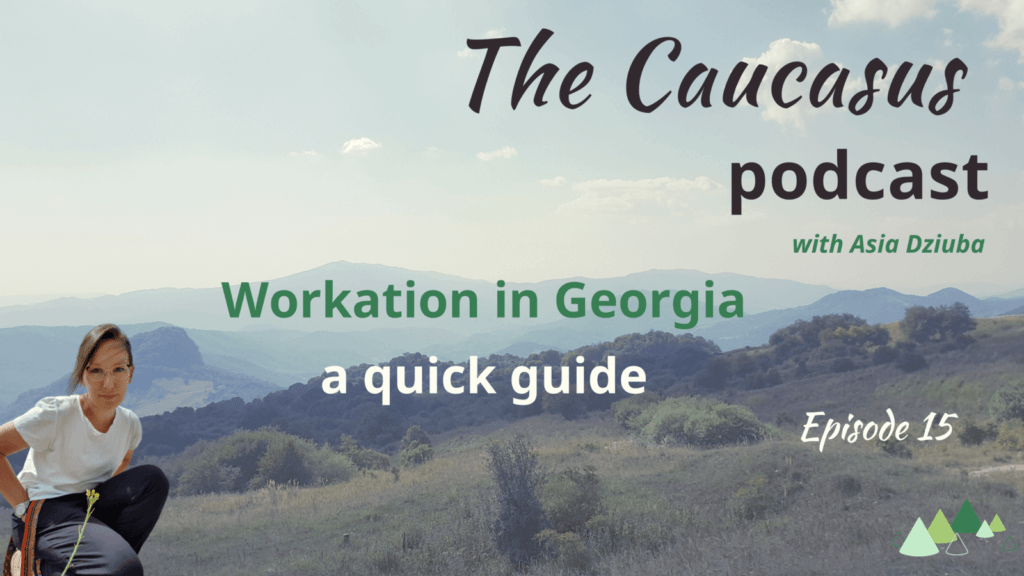
As a result of the demand I mentioned and the governmental and opening of the academic programs, there has increased the number of native speakers offering Georgian classes. I always say this and have to say it now as well. Unfortunately, it’s not enough to be native speaker to be a good Georgian teacher, as you may simply lack the skills and the materials to teach efficiently.
Additionally, what I noticed is that some native speakers treat work as a Georgian tutors, as the temporary job, done in between other professional opportunities so the quality of such lessons also varies. What I recommend if you look for a Georgian teacher is to ask about the background and experience. For example teachers in Języki Kaukazu- Languages of the Caucasus have: education in teaching adults, experience in modern ways of teaching languages and understanding of the challenges the Georgian language may bring to students with different mother tongues.
Finally, with the increase of demand icreased the availability of free resources as well, for example blogs, vlogs and accounts sharing some knowledge of Georgian. That’s something you can use as an additional resource, a supplement for studying Georgian. However as we discussed in episode with Mr. Smith who created the YouTube channel paraskevia! This is not the substitute for Georgian language course or lessons with professional Georgian teacher.
One of the options I noticed many people prefer, especially the ones from different time zones that Georgian, are the self-paced courses. So you get the video lessons, exercises with answers, audios and you can study whenever you have time. This is also the way of studying our students liked as well.
What we have added to it is the direct contact with the teacher in case of any questions, live meetings (recorded), when you receive all the aswers for your questions get support in study planning, so you will actually learn not only buy the course. What works as well these are 1-on-1 conversations after you learn a new piece of material and practice it with the interactive exercises.
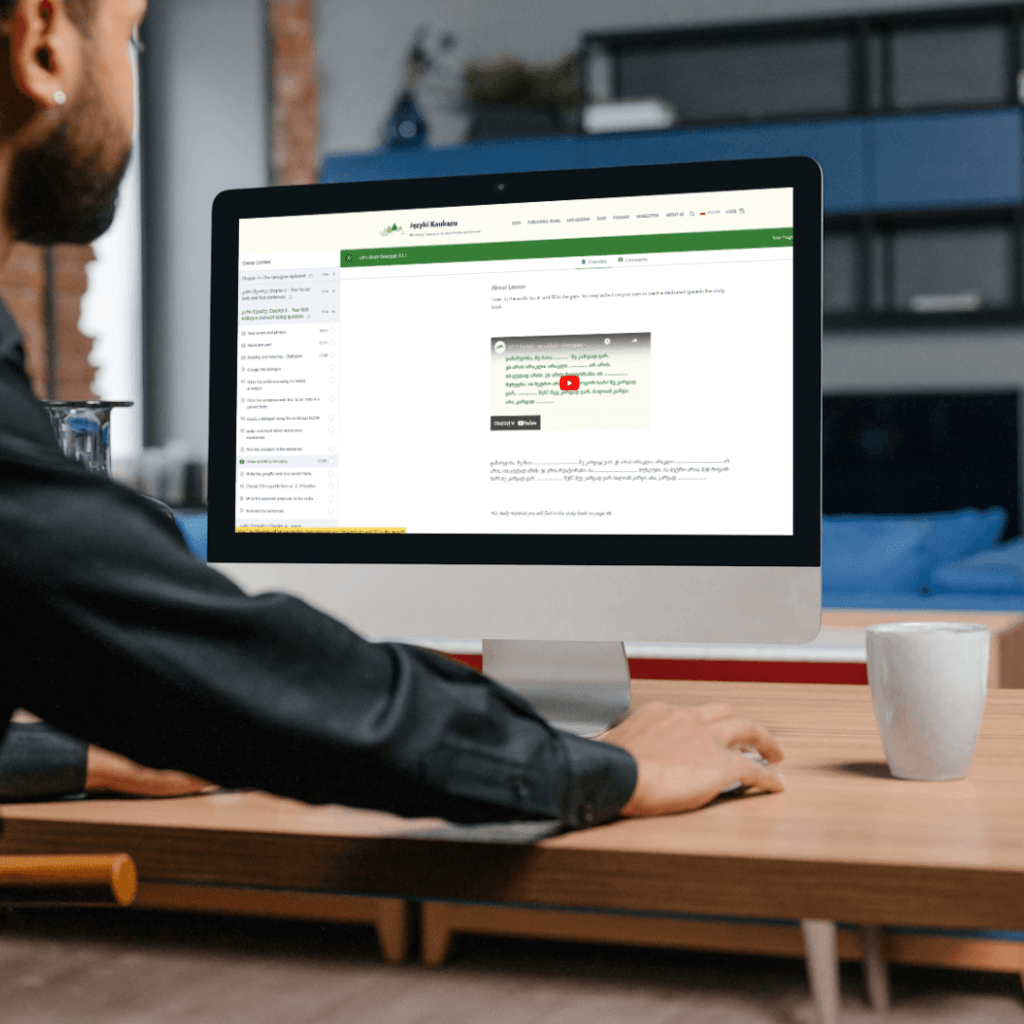
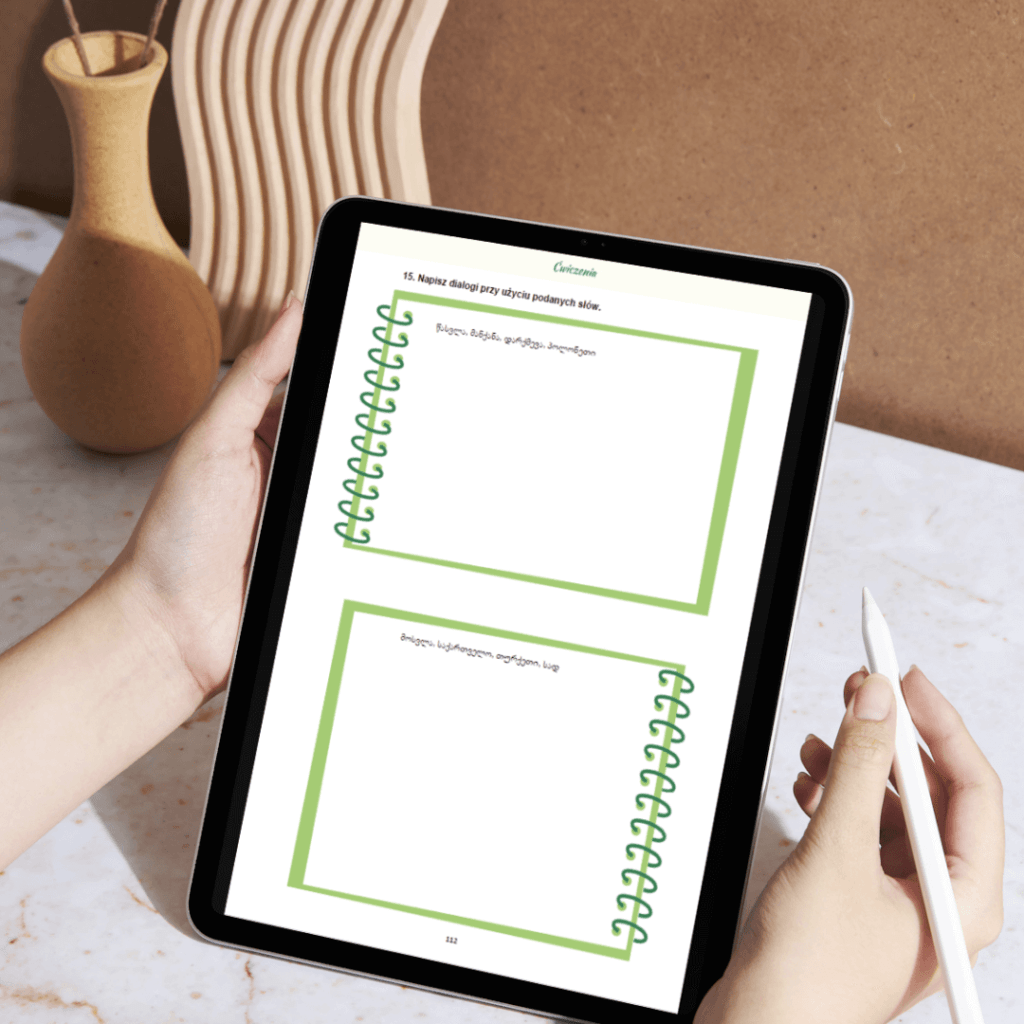
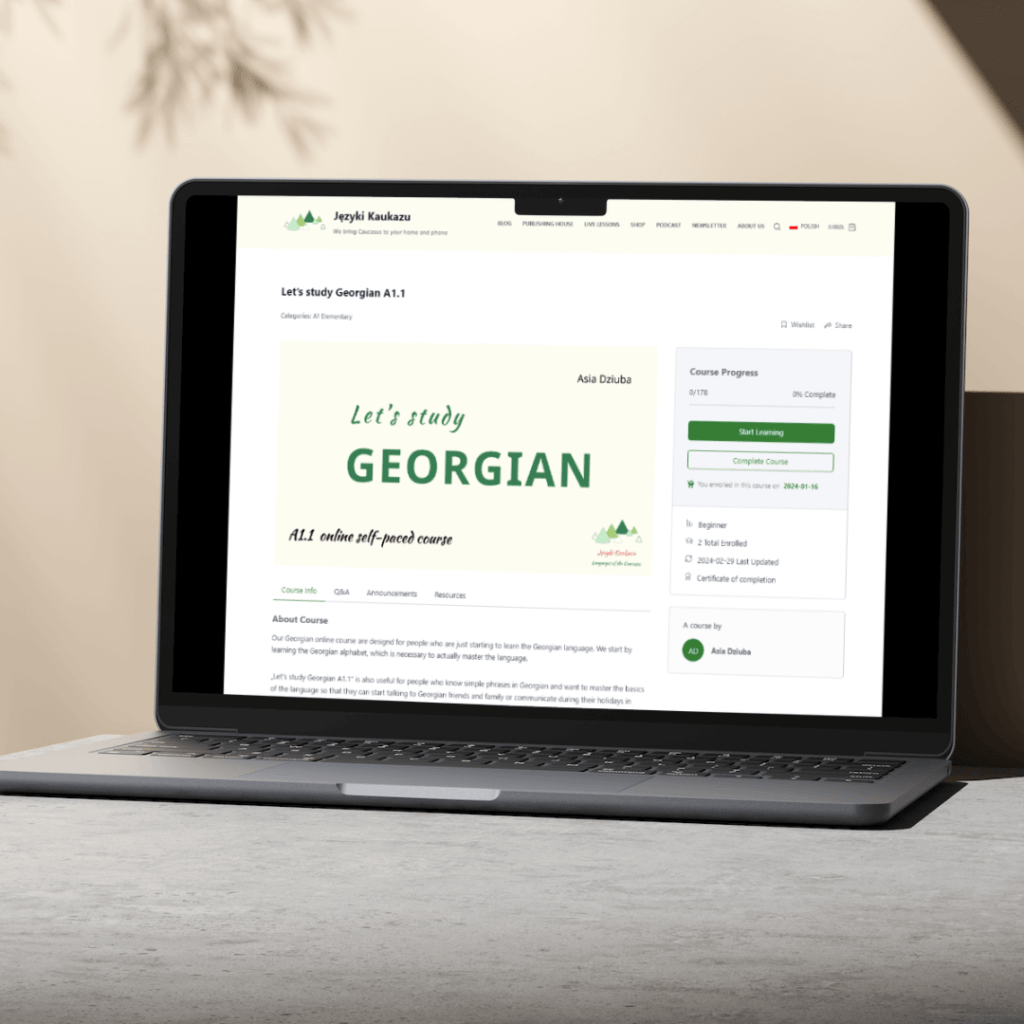
What are the contemporary challenges of the teaching Georgian and studying Georgian as a result?
To sum up today’s episode I would like to share with you the analysis results we do in Języki Kaukazu – Languages of the Caucasus on regular basis. We analyse the market, the demand, the needs and new methods of learning languages. With methods I use, also my knowledge of other markets as I speak 7 different languages and I have taught 4 of them along the years, so I have comparison what works for which language and what not really.
To start from the factors that may be the most visible, not all the Georgian language teachers are being fully prepared to actually teach Georgian as a foreign language. Sometimes they may not know other languages well enough to see what may be different and challenging for foreigners. Sometimes it’s just a temporary job for them and don’t put that much focus and force on building up the skillset. However, wanted to underline there are several good, qualified teachers expanding their expertise on regular basis.
What’s connected with the mentioned challenge, is the limited number of study books and official materials for studying Georgian a bit more focused and adjusted for Georgian as a second language. So these are the materials, e.g. for language minorities living in Georgia or Georgian children from so called mixed families, who hear Georgian at home, but don’t study it at school as living abroad. Such materials and methods are completely different than the ones for adults learning Georgian as a foreign language, especially at the beginner and pre-intermediate levels. Hence, the teachers don’t have such a big pool of study materials to choose from.
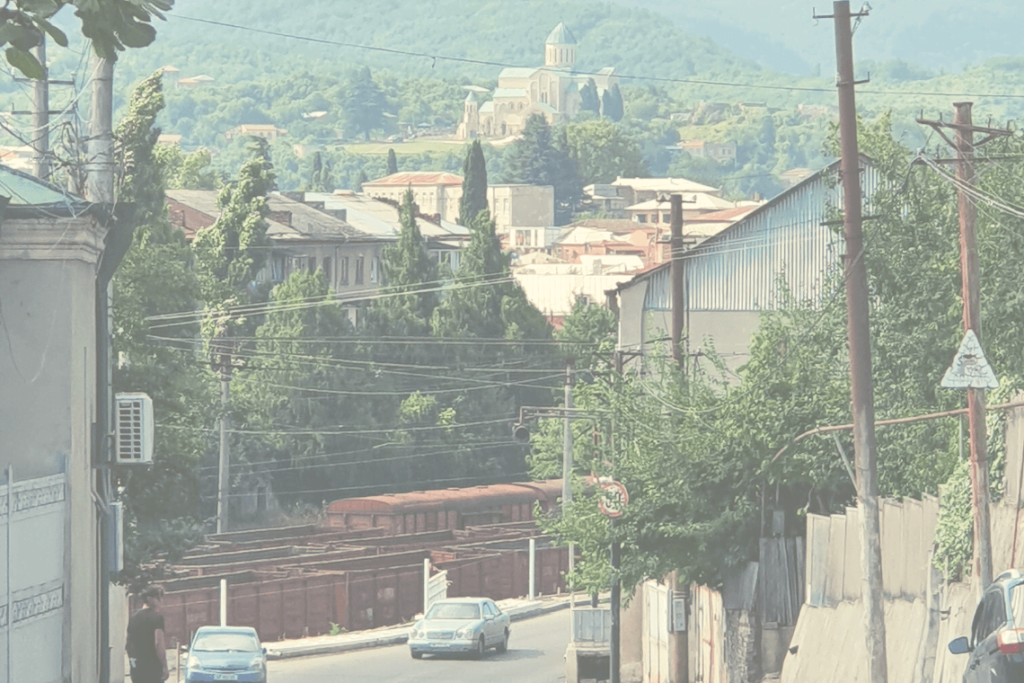
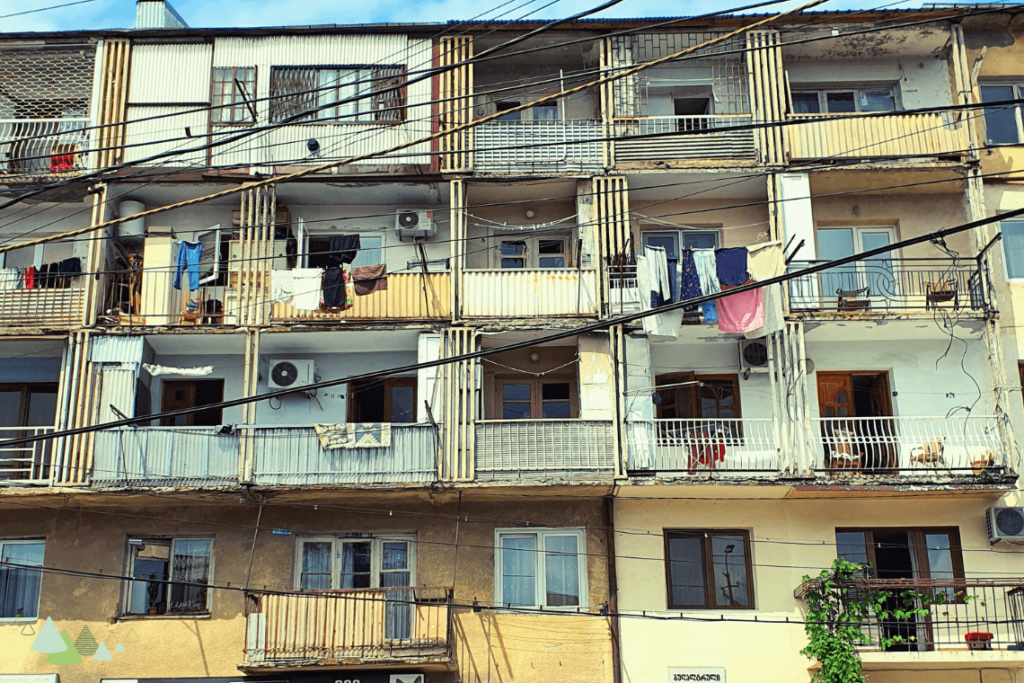
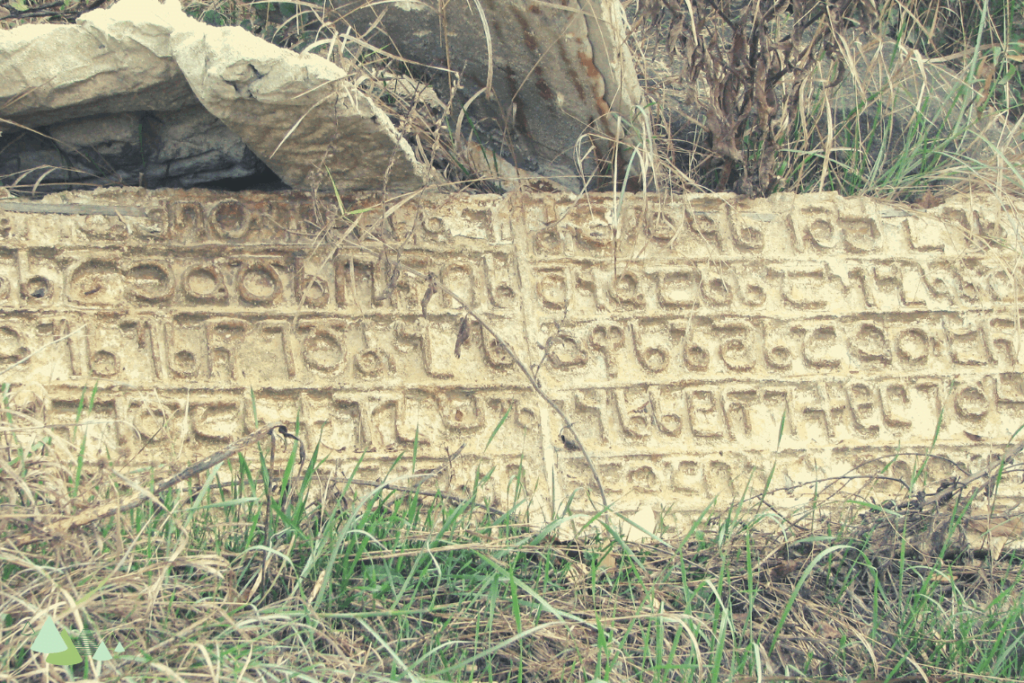
The last one connected with it directly, is that often the methods of teaching Georgian are not adjusted and transformed into the specifics of learning Georgian but are just copied from European languages without any changes. Hence, the student gets the Georgian study materials that may be challenging to learn from or to practice the specifics of Georgian verbs or cases.
The next tier of challenges, directly resulting from it is that the study methods are not fully adjusted to the new technologies, new methods of teaching Georgian, e.g. micro-learning, visuals, mobile, interactive exercises etc. It does not mean that the lessons should be app-based but they should be adjusted to our precent concentration time-spans, ways we are used to absorb information nowadays etc., so more on a teacher mindset level than the tools themselves.
This goes hand-in-hand with still low availability of modern-style high-quality study materials. For example for our students we have created from scratch all the interactive exercises, study materials, audios etc. at the beginning mainly because we needed these for the lessons. As a result, we decided to publish it for wider audience in the form of our study books and online self-paced courses. However, to create such ones, you need to know how to do it and have time to do it.
This all leads us to one result, the belief the Georgian language is hard to learn.
And I want to underline that this is just a belief, a thought that is repeated by some. The Georgian language is for sure different than majority if not all the languages you know. I know several European languages, study Armenian, know Korean and had some experience with Vietnamese and Japanese and can tell you the Georgian language is not harder to learn as such.
The reason why many of us believe it is lays in the root-causes of teaching Georgian I mentioned earlier. The more professional Georgian teachers and the more adjusted, modern and available Georgian study materials, the belief will be more and more disappearing. I saw similar patterns with several other languages and I am more than sure the same will be in future with teaching Georgian.
I remember when I started learning Georgian over 16 years ago and the was just one, two books available only in Tbilisi. I compare it what is available now for studying and teaching Georgian and am so proud of our work in Języki Kaukazu – Languages of the Caucasus that we can also contribute to the process of making the Georgian study more approachable and available for you as well and further development of teaching Georgian.
We prepare the Caucasus podcast for you so you get reliable news and analyses about Caucasus. If you like our podcast let us know by liking it, rating it e.g. on Spotify or Apple Podcasts and remember to follow it so you won’t miss the next episodes.
Thank you very much for today and see you in the next episode of the Caucasus podcast or in our newsletter The Caucasian Mail or during Georgian lessons.
